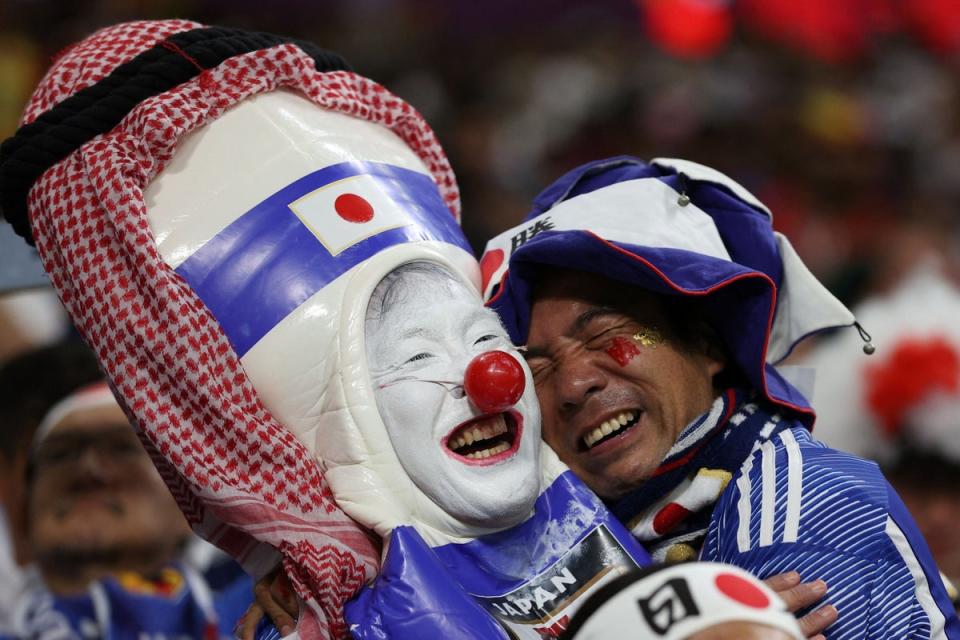Japan do it again to claim Spain scalp - how far can they go at World Cup 2022?

Every football fan on the planet will tell you that their team never does it the easy way, but Japan’s supporters should have express rights on that particular cliche this morning.
A group stage that included a dismal 1-0 defeat to Costa Rica (who otherwise shipped 11 goals in two matches), somehow ended in remarkable triumph as, either side of that result, Japan beat two of the three most recent world champions to advance in top spot.
A 2-1 win over Spain, which in some elements was almost a carbon-copy of the opening victory over Germany, came thanks to two second-half goals in three minutes, the first scored by Ritsu Doan and the second by Ao Tanaka, after the ball appeared agonisingly close to going out of play in the build-up.
Some shots appeared to show a forest of grass between line and ball, but angles can be deceiving and there was something neat about technology coming down on the side of the Blue Samurais.
The pressing question now is: how far can they go?
Four years ago, in Russia, Japan got out of the group only by virtue of fair play and then imploded late on against Belgium, throwing away a two-goal lead to be knocked out by Nacer Chadli’s stoppage-time winner on the counter-attack.
The shoe has very much been on the other foot in Qatar, with both the victories over Spain and Germany coming after Japan had themselves trailed 1-0 at half-time.
Head coach Hajime Moriyasu has proven himself a shrewd in-game tactician, a vital attribute in knockout tournament football — just ask critics of Gareth Southgate — and Japan’s strength from the bench is clear, with Tanaka’s winner last night the first scored by one of the team’s starters since the tournament began. Even that was made by a substitute, Brighton’s Kaoru Mitoma.

The 2018 runners-up Croatia are up next in the last 16, a team orchestrated by the midfield pair of Luka Modric and Mateo Kovacic, who will at least try to dictate affairs. That may be no bad thing for Moriyasu’s side, who have looked more suited to defending aggressively and playing on the counter than dominating the ball: against Germany, Japan had only a quarter of possession and just 17 per cent against Spain, but with the lion’s share in the Costa Rica game struggled to create openings.
Despite the anti-social time difference, Japan, co-hosts of this tournament two decades ago, are benefiting from a huge swell of support at home, with pictures of packed public viewings in Tokyo before dawn this morning. “Big thanks to all our supporters, the people of Japan,” said Moriyasu, who received a congratulatory call from the country’s prime minister, Fumio Kishida, after full-time.
Japan have never previously reached the last-eight of the World Cup, and the prize for victory over Croatia may well be a glamour quarter-final tie against Brazil.
“I’m happy I was able to deliver the victory to everyone and, in terms of a finish, the new aim for us is the last-eight,” Moriyasu added. “The players are showing us a different and new view of being able to fight on the world stage and we would like to set a new record of the quarter-finals or better.”

